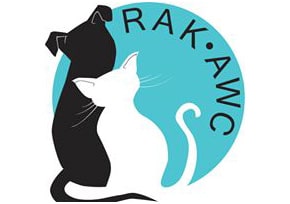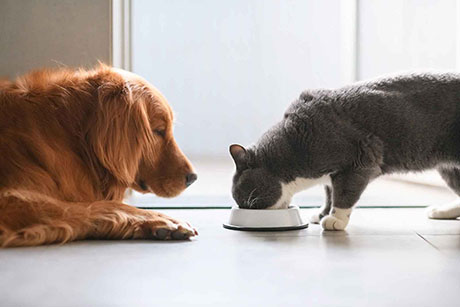- Al Jazirah Al Hamra, Ras al Khaimah
- rakawc@psd.rak.ae
- 072433184 / 056 357 6908
Before you Adopt
Adopt || Before you Adopt
BEFORE YOU ADOPT
Before you decide to adopt a dog or a cat, ask yourself a few QUESTIONS:
Why do I/we want to adopt a pet?
Are you ready to make a long-term commitment? 10 to 15 years?
Do you know what kind of pet is right for you?
Can you afford to care for your pet’s health and safety?
Will you be able to spend quality time together?
Do you have a plan for your pet during vacations and/or work travel?
Are you prepared to deal with any possible health challenges?
Are you willing to train your animal friend?
Are you prepared to pet-proof your home?
Is your living space adequate and appropriate for your animal of choice?
Is your family ready for a pet? Is your current pet able to accept a new friend?
Do any members of your household have allergies to hair, dirt, and other realities of sharing your home with a pet?
And.....
Are you prepared for the relocation costs when you leave the UAE and return to your country of origin?
Enter pet ownership as a lifetime commitment. Do not get a pet until you are sure you have the resources and time to care for this animal. In return, you will be rewarded with unconditional love.
WHAT TO EXPECT WHEN YOU ADOPT A PET?
Aside from the financial costs related to pet ownership - adoption fee; routine annual medical care; emergency medical care; food, basic items – collars, leashes, identification tags, kitty litter and box, a bed and toys, a crate or carrier, food, and water bowls, scratching pole for cat, grooming items – comb or brush, doggy shampoo, nail clippers; training classes if required. You must also consider the impact on your lifestyle due to accommodating the daily routine of your new friend - including but is not limited to walking the dog; feeding the animals; providing freshwater; quality time; training; grooming; medical attention.
CHOOSING THE RIGHT PET FOR YOU AND YOUR FAMILY
A puppy/kitten or a mature dog/cat?
Consider the time you have for the pet. The younger the pet the more time and attention it requires. Puppies and kittens need to be trained and need more patience. If your schedule is busy, consider a more mature animal. Older dogs, and especially cats more likely will be content being alone. Remember also that all young animals eventually grow up, and if not trained properly they may become rough and difficult to handle.
On the other hand, if you have more time and patience to offer to the young pet, you can teach him or her your household rules and give them consistent and effective obedience training.
Small children are usually not suited for puppies and kittens, which can bite or scratch a child while playing. A more mature dog is a better option. Regardless of the animal’s age, an adult should always monitor all interactions between small children and animals.
A big or a small dog?
If you have children in the home, small dogs are a poor choice, since children can accidentally hurt the dog. Choose a dog with which the children can safely play.
Consider also the size of your home – what size dog can your home accommodate? Additionally, if you travel frequently and you want to take your pet with you, ask yourself how big a dog can you travel comfortably with?
A calm or active pet?
Remember that size does not indicate energy level; some small dogs require more attention and time than large calm dogs. Active dogs that seem to be happy and are not oversensitive are typically a good choice for families with children.
If you live in an apartment, look for a reasonably smaller but quiet dog.
Ask yourself what do you expect your pet to contribute to your life? Do you want a running buddy or a companion to watch TV?
If there is an elderly or physically challenged person in your household, a strong vigorous dog is not a good idea.
A particular breed or a mixed breed?
The majority of the animals in the RAK AWC shelter are mixed breeds. The advantage of adopting a mixed breed dog or cat is that mixed breeds are usually healthier than their purebred cousins, thus might require fewer visits to the veterinarian. This comes from mixing two or more separate gene pools. Additionally, character and behavioral traits that are characteristic to certain purebreds, do manifest in mixed-breed dogs, but in a diluted form.
However, if you still want a purebred pet, do not reject the thought of adopting a pet from a shelter. A percentage of our shelter population are purebreds, these are mainly Saluki dogs. Contact our shelter to ask if a pet of a specific breed is available

